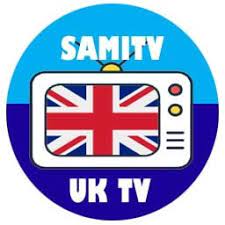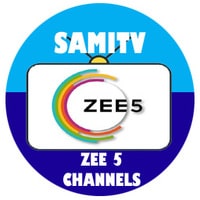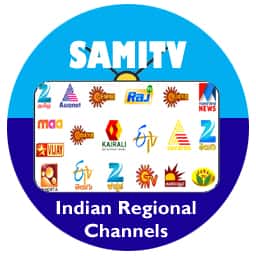Introduction:
Television is a major form of entertainment and information source in the United Kingdom. There are many different types of television channels available in the UK, ranging from terrestrial channels to cable and satellite channels. With the advent of digital broadcasting and streaming services, the number of channels available has increased significantly over the years. In this article, we will provide an overview of the history, types, features, popular programs, and FAQs related to UK TV channels.
History:
The first regular television broadcasts in the UK began in 1936 with the launch of the BBC Television Service. The service was interrupted during World War II but resumed in 1946. In 1955, the independent commercial broadcaster ITV was launched, which initially served only the London area but gradually expanded to cover the entire country. Over the years, more channels were launched, including Channel 4 in 1982 and Channel 5 in 1997. The digital switchover, which began in 2007, led to the launch of more channels, including Freeview and satellite channels.
United Kingdom TV Channels:
There are various types of television channels in the UK, including:
- Terrestrial channels: These are channels that are available via an aerial and do not require a subscription. They include BBC One, BBC Two, ITV, Channel 4, Channel 5, and various other channels available through the Freeview service.
- Cable TV channels: These channels are available via a cable subscription from companies such as Virgin Media and offer a wider range of channels than terrestrial channels.
- Satellite TV channels: These channels are available via a satellite subscription from companies such as Sky and offer a wide range of channels, including premium channels.
- Streaming TV channels: These channels are available via internet streaming services such as Netflix, Amazon Prime Video, and Disney+.
Features:
UK TV channels offer a range of features, depending on the type of channel. Terrestrial channels are free to view and offer a limited number of channels, while cable and satellite channels require a subscription and offer a wider range of channels, including premium channels. Streaming TV channels offer on-demand programming and original content and can be accessed via internet-enabled devices such as smartphones, tablets, and smart TVs.
Popular Programs:
Some of the most popular programs on UK TV channels include:
- Strictly Come Dancing (BBC One)
- Coronation Street (ITV)
- EastEnders (BBC One)
- Emmerdale (ITV)
- The Great British Bake Off (Channel 4)
- The Crown (Netflix)
- Line of Duty (BBC One)
- Peaky Blinders (BBC One)
- Love Island (ITV)
- I’m a Celebrity…Get Me Out of Here! (ITV)
Cable TV:
Cable TV is a type of television service that delivers television programming via a coaxial cable network. In the UK, Virgin Media is the largest cable TV provider, offering a range of channels, including premium channels such as Sky Sports and Sky Cinema.
Satellite TV:
Satellite TV is a type of television service that delivers television programming via a satellite dish. In the UK, Sky is the largest satellite TV provider, offering a range of channels, including premium channels such as Sky Sports and Sky Cinema.
Streaming TV:
Streaming TV is a type of television service that delivers television programming via the internet. In the UK, popular streaming services include Netflix, Amazon Prime Video, and Disney+. These services offer on-demand programming and original content, which can be accessed via internet-enabled devices such as smartphones, tablets, and smart TVs.
Broadcast TV
Broadcast TV Providers in the UK offer a range of options for accessing digital terrestrial TV channels. These include:
- Freeview: Freeview is a free digital TV service in the UK that offers access to over 70 TV channels and 15 HD channels, as well as a range of radio stations. It is available through a standard TV aerial and does not require a subscription.
- Freesat: Freesat is a free-to-air digital TV service in the UK that offers access to over 200 TV and radio channels, including HD channels. It is available through a satellite dish and does not require a subscription, although some channels may require a viewing card.
- YouView: YouView is a hybrid TV service in the UK that combines Freeview channels with on-demand content from services like Netflix and Amazon Prime Video. It is available through a set-top box and requires an internet connection.
- Digital Cable TV: Digital cable TV providers like Virgin Media offer a range of TV channels, including premium channels like Sky Sports and Sky Cinema, as well as on-demand and catch-up TV services.
- Digital Satellite TV: Digital satellite TV providers like Sky offer a wide range of TV channels, including premium channels, sports channels, and international channels. They require a satellite dish and a subscription.
- TalkTalk TV: TalkTalk TV is a TV service in the UK that offers access to Freeview channels as well as on-demand content from services like Netflix and Amazon Prime Video. It is available through a set-top box and requires an internet connection.
Overall, there are several options for accessing digital terrestrial TV channels in the UK, ranging from free services like Freeview and Freesat to paid services like digital cable and satellite TV.
FAQs:
Q: How many channels are available on Freeview?
A: Freeview offers over 70 standard-definition channels and 15 high.
Q: What is the TV license in the UK?
A: In the UK, a TV license is required to watch or record live television programs on any channel or device. The license fee is used to fund the BBC, which operates a range of television and radio channels.
Q: How can I access premium channels like Sky Sports and Sky Cinema?
A: Premium channels like Sky Sports and Sky Cinema can be accessed through subscription services like Sky, Virgin Media, or BT TV.
Q: Can I watch UK TV channels from abroad?
A: It is possible to watch UK TV channels from abroad through streaming services like BBC iPlayer and ITV Hub, but access may be restricted due to licensing agreements.
Q: Can I watch UK TV channels in HD?
A: Yes, many UK TV channels offer high-definition (HD) programming, which can be accessed through compatible devices and services.
Q: Can I watch UK TV channels on my mobile device?
A: Yes, many UK TV channels offer mobile apps or streaming services that allow viewers to watch programming on their mobile devices.
Q: Are there any regional TV channels in the UK?
A: Yes, there are several regional TV channels in the UK, including STV (Scotland), UTV (Northern Ireland), and ITV Wales & West.
Q: What is the difference between BBC One and BBC Two?
A: BBC One is a general entertainment channel that features a mix of programming, including drama, news, and comedy, while BBC Two is known for its more high-brow programming, including documentaries, arts, and culture.
Q: What is the most popular TV channel in the UK?
A: BBC One is the most-watched TV channel in the UK, followed by ITV and Channel 4.
Q: Can I pause and rewind live TV on UK TV channels?
A: Yes, many UK TV channels offer features like live pause and rewind, which allow viewers to pause and rewind live programming for a limited time.
Q: Are there any 24-hour news channels in the UK?
A: Yes, there are several 24-hour news channels in the UK, including BBC News, Sky News, and CNN International.
Q: Are there any channels that are only available on cable or satellite?
A: Yes, there are many channels that are only available on cable or satellite, including premium channels like Sky Sports and Sky Cinema, as well as international channels and niche programming.
Q: Can I record TV programs on UK TV channels?
A: Yes, many UK TV channels offer recording features, either through a set-top box or a compatible device. Additionally, viewers can use third-party recording devices like DVRs to record programming.




